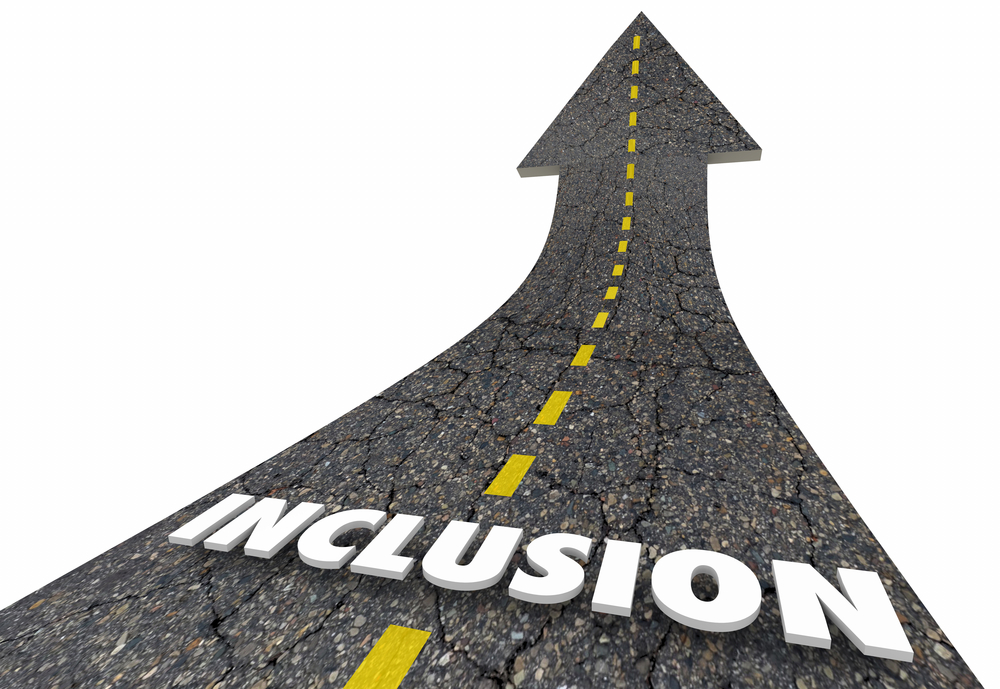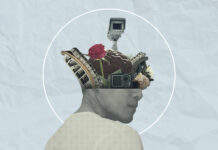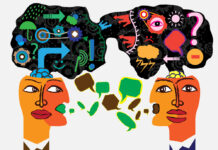This year the journal Psychiatric Services launched a new column on Lived Experience Inclusion and Leadership, which constitutes the journal’s first peer-reviewed publication led and co-authored by lived experience leaders. In a comment on the inaugural column authored by Dana Foglesong and colleagues, Professor Nev Jones explains the need for experientially grounded research as a path towards democratizing psychiatric knowledge production.
Increasing attention is being paid to the potential of service users as researchers, knowledge producers, and crafters of mental health policy. Rights-based approaches to psychosocial disability law and the UN’s Convention on the Rights for Persons with Disabilities (CRPD) even require the inclusion of affected populations in decision-making. Proponents of inclusion argue that engagement with service user perspectives is necessary to relieve the epistemic disparities in mental health policy and research.
 The practice of peer support comes from the peer support movement that arose in the 1970s as a non-hierarchical, service user-led intervention into mental health systems and a rejection of the dominant medical model of psychiatry.
The practice of peer support comes from the peer support movement that arose in the 1970s as a non-hierarchical, service user-led intervention into mental health systems and a rejection of the dominant medical model of psychiatry.
Characterized in part by the lived experience of both participants and peer support workers with mental health challenges, modern examples of peer support groups include the Hearing Voices Network. Such peer-support interventions have shown that flattening the hierarchical model of service provision for persons with psychosocial disabilities can transform dominant social and political assumptions about mental illness.
As with dominant modes of psychiatric service provision, psychiatric research has historically excluded the perspectives of persons with psychosocial disabilities.
Lived experience-led research, Jones writes, “is scholarship that represents a tangible democratization of knowledge production that contributes to rebalancing epistemic disparities stemming from historical failures to fully and equitably include those whom psychiatric services are designed to serve.”
While Jones notes that peer support has gained attention as a solution for the flaws of traditional mental health service provision, most peer specialists are low-wage workers with few opportunities for career development, and the majority of research on peer support is led by researchers without direct experience as peer supporters.
On the other hand, she expresses “real hope and substantive potential for a very different future. In this future world,” she writes, “those on the receiving end of services, lived experience leaders, and the collective movements that have sustained a multidecade push for experientially grounded change will no longer be marginal players in psychiatric research and research-informed policy, but valued collaborators and leaders.”
That this should one day be the “new normal” in psychiatric research and policy is a future that all democratically-minded people – with or without lived experience – should be working towards.
****
Jones, N. (2022). Lived Experience Leadership in Peer Support Research as the New Normal. Psychiatric Services 73:2, p.125. https://ps.psychiatryonline.org/doi/epub/10.1176/appi.ps.73201 (Link)















I think lived experience without competency, accountability, ethics, knowledge, wisdom, empathy, and personal responsibility will just be another way of doing psychiatry and calling it “lived experience”. Most lived experience people do not even know what worked for them.
I like to go further and suggest (as if anyone will actually listen), that when people have psychosis, do not put medications on them (these medications are not for the person often but for the doers peace of mind or for the society), do not separate them from one person that they trust, and do not keep them incarcerated in the hospital after they are back to reality no matter what your feelings/thoughts are if they are back and want to go home, and there is no crime, let them go home or whatever they want to go shelter, streets etc. Let them come back if they feel, but do not force externally.
Psychoses is more than losing reality. It is loss of power both internally and externally and the involuntarily process exacerbates this power imbalance further by double downing on it and adding aggression and violent treatment without consent! How is this helpful? Most people I met come back from these experience broken more and bitter!
The process of involuntarily confinement can be soften, personalized, include trusted friends or family members, and be less medicalized or zero medicalized. I think these will work better than just getting rid profession. I am very much basing this on the knowledge gained from Milgram experiment and the likes. Lived experience with power will most likely act the same way as psychiatrist given enough time. The system needs to change. Those in confinement in the hospital need to be treated with respect and humanity and involve their own recovery. They are not stupid. They are just in extreme pain that none of us can understand.
I never experience psychosis myself (so I cannt say I am lived experience expert), but I have seen enough treatment of those who lose reality and the loss of empathy of the masses (including doctors and society) as if we are immune to this or above it.
We are not.
Report comment
“dogworld”, that is one of the best personal explanations I have ever read. Yes, I really mean that. You aren’t using my words, but you describe what I have seen, and what I have been through. And your words say how I see things. My only point of disagreement is that I KNOW what happened, and what worked and why. I sought understanding, and was shown it, it was shared with me, & I found it. Only understanding CAN CLEAR, and even cure confusion & dysfunction….
Report comment
“Most lived experience people do not even know what worked for them.”
Grandiosity Disorder. What hubris. Perhaps I misunderstand. But my writers group aimed at improving mental health care would disagree with this statement, too, I’m guessing.
Cutting the commenter some slack: It is challenging to write cogently about this field and lived experience.
I have pretty great idea of what worked and didn’t work in my lived experience with criminal psychiatry.
Long lists.
https://www.madinamerica.com/2021/10/people-dont-recover-criminal-psychiatry/
Report comment
Most providers don’t have the first clue of what “worked” for the client, or even what the client regarded as “working.”
Report comment
Historically speaking, “persons with psychosocial disabilities” DID NOT EXIST….
“Persons with mental health challenges” defines ALL people. Except the dead and pre-born.
Damn. That’s cool! Now, I’m a “LIVED EXPERIENCE LEADER”!….
So, let me now LEAD the pseudoscience drug racket social control mechanism of 21st Century Phrenology with potent neurotoxins, i.e., “psychiatry”, right over here to the TRASH….
Psychiatry is not only pseudoscience, it’s also JUNK SCIENCE, and trash….
Just look at the homeless druggies & drunks littering even Main St., America….
I used to be one of them….and sometimes still am, judging from how I’m often treated….
As glad as I am to read the article above, I can’t help gently & lovingly mock and ridicule the
“woke” SJW jargon, and the mind-control aspect of that narrative….
Sorry, no, but the way my brain works does NOT constitute a so-called “mental illness”, and I have no need of a “psychiatric” ANYTHING….any given psycho-active drug, illicit or prescribed pharmaceutical, will have some effect on my psychology….
Only nothing has any effect on my “psychiatry”…..and anything else has no effect on my “psychiatry”, either. But, everything else has an effect on my psychology….
I HAVE NO PSYCHIATRY. Nobody needs psychiatry. It needs eliminating, not “reforming.”
When you fools stop jerking around trying to “reform” the pseudoscience of psychiatry, why not follow my lead in not only eliminating the social infection of psychiatry, but creating in it’s place the just, humane, loving World you can only yet imagine? I LIVE THERE TODAY….
Report comment
Think this tune to the old Barbra Streisand song, “People Who Need People.” “People Who Abuse People are the neediest people in the world.” I have given up everything to these people, including myself and I continue giving daily. I have far exceeded my contribution. Have you? Thank you.
Report comment
Not sure how keeping “psychiatric research” etc., is something worth supporting. u.s. psychiatrists and what they see as research (political negotiation and worse, per Paula J. Caplan, for example, https://www.youtube.com/watch?v=tgilBaRbulc) gave the world dsm, a recipe book for pathologizing human suffering. If one has, for example, been raped, directly experienced war, other trauma, and one is acting abnormally per dsm, seeing a psychiatrist will almost certainly begin with being given one or usually more “diagnoses” – e.g., anxiety, clinical depression, bi-polar, personality disorder, ptsd – and very often dangerous drugs are prescribed to “fix” the person’s faulty biology which couldn’t “appropriately” deal with their traumatic experiences. Strangely, psychiatric “research” and dsm has little to say about what would be “normal behaviour” for such horrific experiences because it’s always easier for psychiatrist and their supporters to blame the victim of trauma and, often, sedate them into submission. Then the “symptoms” will reduce or go away and that will be seen as a psychiatric “cure”. Applied to actual, physical medicine, a psychiatrist seeing someone with, say, a broken arm, would prescribe major mood stabilizers and/or other drugs – symptoms would subside, until they wore off, then more more drugs would be prescribed, until the person became accustomed to the bend in their arm and another cure for “psychiatry” would be racked up. Anyone here interested in alternatives to what psychiatrists and other medically minded professionals do? Try https://www.bps.org.uk/power-threat-meaning-framework
Report comment